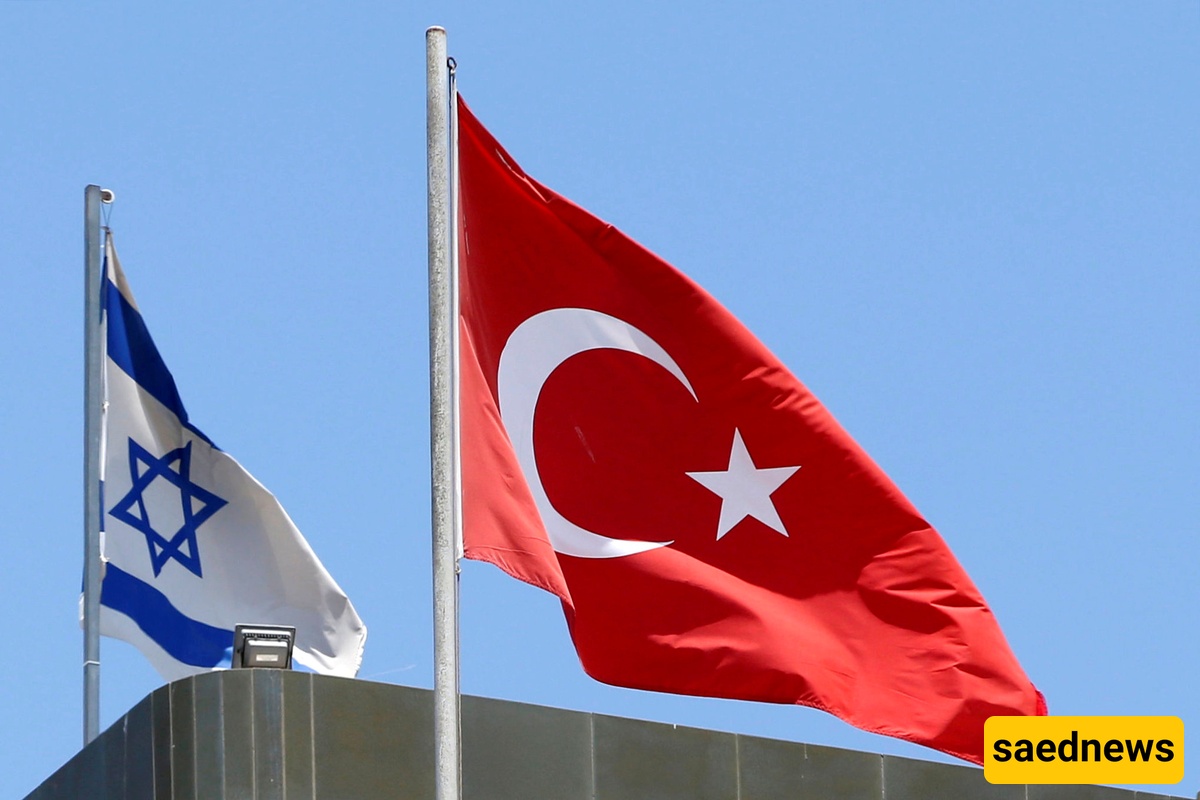SAEDNEWS: After Israel’s strikes on Qatar, experts warn that Turkiye could become the next focus of Israeli regional ambitions, heightening tensions in the eastern Mediterranean amid a complex geopolitical rivalry.

Hours after Israel launched airstrikes against Qatar, a US-designated “major non-NATO ally,” analysts and commentators quickly turned their attention to Turkiye, raising concerns about the escalation of regional tensions.
In Washington, Michael Rubin, senior fellow at the American Enterprise Institute, suggested Turkiye could be Israel’s next target, warning that the country cannot assume its NATO membership guarantees protection. On social media, Israeli academic Meir Masri posted:
“Today Qatar, tomorrow Turkey.”
Ankara responded sharply. A senior adviser to President Recep Tayyip Erdogan wrote in unusually harsh language:
“To the dog of Zionist Israel … soon the world will find peace with your erasure from the map.”
For months, pro-Israel outlets have painted Turkiye as Israel’s most dangerous regional adversary, framing its presence in the eastern Mediterranean as a threat and highlighting Ankara’s role in post-war Syria reconstruction as a rising danger.
“In Ankara, this rhetoric is taken seriously, with Israel seen as seeking regional hegemony,” said Omer Ozkizilcik, non-resident fellow at the Atlantic Council.
“Turkiye increasingly feels that Israeli aggression has no limits and enjoys American support,” he added.
The strikes on Qatar also intensified Ankara’s doubts about US security guarantees. Despite Qatar’s special ally status with Washington, Israel acted without visible pushback from the US, prompting questions over whether the US would treat an attack on Turkiye as a NATO-mandated threat.
“Turkiye has long realized it cannot rely solely on the US or NATO for national security,” Ozkizilcik noted.
Israeli Prime Minister Benjamin Netanyahu has openly embraced a vision of “Greater Israel.” In August, he stated:
“Absolutely.”
For Ankara, this rhetoric is more than symbolic—it signals Israel’s ambition for regional dominance, potentially clashing with Turkiye’s strategic outlook.
Turkish Foreign Minister Hakan Fidan told Al Jazeera that Israel’s vision aims to keep regional countries weak and divided, particularly targeting Syria, Lebanon, Egypt, and Jordan.
Israel’s military actions are extensive. Alongside Gaza and the West Bank, Israel has:
Attacked Syria and Yemen, and reportedly targeted a Gaza aid flotilla in Tunisia.
Bombed Syrian territory in the chaos following President Assad’s temporary retreat to Moscow.
Weakened Hezbollah leadership in Lebanon and occupies portions of the country despite ceasefire agreements.
Engaged Iran militarily in a 12-day war, targeting nuclear and military facilities.
This demonstrates Israel’s commitment to regional hegemony while targeting potential challengers to its dominance. Experts suggest Turkiye may now be next.
“Israel’s stance prevents Ankara from establishing bases in Syria that could threaten Israel,” analysts note.
A major point of tension is Cyprus. Israel’s deepening military and intelligence footprint there, coordinated with Greece and the Greek Cypriot administration under US auspices, is seen in Ankara as a deliberate attempt to contain Turkiye’s influence.
Turkish admiral Cem Gurdeniz, architect of the Blue Homeland doctrine, warns:
“This is not a defensive posture by Israel but an offensive encirclement strategy that threatens Turkish maritime freedom and the security of Turkish Cypriots.”
Reports of Israeli air-defense systems reaching Cyprus heighten Ankara’s concerns about potential encirclement in the eastern Mediterranean.
In Syria, Israel favors a federalized, fragmented state, contrasting with Turkiye’s support for a centralized, unitary Syria. Turkish analysts note the risk of intergroup conflict turning into prolonged ethnic and sectarian clashes, making Syria a high-stakes geopolitical flashpoint.
“Turkiye has clear red lines in Syria,” said Murat Yesiltas, director of foreign policy research at SETA.
“US and Israeli attempts to reshape the regional order increase fragmentation and risk instability,” he added.
Israel’s INSS think tank warned that peace efforts between Turkiye and the PKK could weaken Kurdish autonomy, indirectly threatening Israel’s strategic freedom.
Experts argue that Israel’s threat is unlikely to manifest as conventional military aggression but through indirect methods: covert operations, proxy competition, and targeted airstrikes.
“Ankara must strengthen strategic deterrence with air-defense systems, missile capabilities, and regional coalitions while keeping diplomatic channels with Washington open,” said Andreas Krieg, King’s College London.
The grey-zone strategy means future flashpoints are more likely in covert and indirect confrontations than formal declarations.
As tensions rise, Turkiye and Israel are locked in a complex geopolitical rivalry. While a full-blown conflict is not inevitable, Ankara faces the challenge of defending its strategic interests against an increasingly assertive Israel backed by the US.
“The Middle East is entering a period of high-stakes maneuvering,” experts warn, “and Turkiye may soon be Israel’s next focus after Qatar.”
With regional ambitions, maritime disputes, and the Syrian conflict converging, the eastern Mediterranean remains on edge, leaving the world to watch closely whether rhetoric escalates into confrontation or diplomacy prevails.

